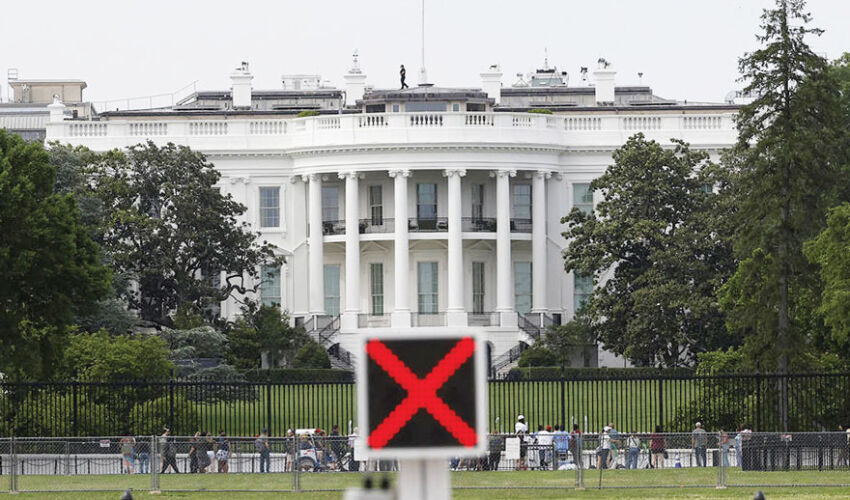
Short-term consequences are already inevitable. Some regions of the U.S. will experience shortages of imported goods, especially from Asia. More broadly, aggregate demand is likely to be depressed as almost all participants in the economy, including companies, investors and households, have adopted a wait-and-see attitude toward investment and consumption. The China-U.S. agreement to suspend prohibitive duties for 90 days is welcome, but it does not completely eliminate uncertainty.
This is not to say that Trump’s duties threaten America with instant disaster. The US economy is not very dependent on foreign trade: including the services sector, imports reach only 14% of GDP, while exports exceed 11%. In addition, the deregulation program proposed by the Trump administration (if effectively implemented) will help spur economic growth by raising a wave of domestic investment in a wide range of industries and infrastructure.
The rest of the world, too, could avoid the worst effects of Trump’s duties in the short term. The US economy’s share of global GDP is as high as 25%, meaning it is large enough to cause widespread disruption, with some countries and regions more vulnerable than others. But if other countries (accounting for three-quarters of the world economy) continue to trade freely with each other (and potentially impose retaliatory duties against the US), the damage could be significantly reduced.
The International Monetary Fund echoed these estimates, predicting that Trump’s duties would have the biggest impact on economic growth in the US (-0.9%), followed by Canada and China (-0.6%) and Japan (-0.5%). The IMF also predicted a 0.5% loss in the UK, but without taking into account the just-announced US-British trade framework agreement. Finally, the largest countries in continental Europe are expected to lose 0.3% or less. This is not ideal, but it is not fatal either.
But the long-term consequences of Trump’s tariff policy appear to be more serious – and they are more predictable. America, for all its faults, was for decades considered a reliable global player – in trade, finance, foreign policy, security. Not anymore. Political and business leaders are convinced that the U.S. can no longer be relied upon, so they are updating their resilience and security strategies.
Europe is dramatically increasing defense spending in response to the Trump administration’s apparent indifference to the security concerns of America’s longtime allies. Many countries will also diversify trade, reducing dependence on the US. Canada, for example, is negotiating to renegotiate the “U.S.-Mexico-Canada Agreement” (Trump called it a great victory during his first term and now wishes to change it), but is going to expand trade and investment ties and lower domestic barriers to trade. Such diversification will fundamentally change the structure of the world economy.
The long-term stability of the US economy and financial system has also been jeopardized as the Trump administration weakens their institutional foundations. These include a commitment to capital account openness and price and budget stability; a Federal Reserve that is not subject to short-term political pressures; and a regulatory system that fairly applies rules to foreign and domestic players, as well as resolves disputes between them. If such trends continue, foreign investment flows could begin to bypass the U.S., in direct contradiction to Trump’s stated goals.
There is potentially another blow to America’s long-term prospects: top scientific and technical talent may want to leave for other countries because the Trump administration is canceling funding for basic and applied research in science and technology because of strained relations with universities it blames for its leftist bias. Full data on this new “brain drain” is not yet available, but anecdotal evidence suggests that the number of scientists sending resumes to Europe and Asia is growing. European Commission President Ursula von der Leyen has directly addressed these scientists, inviting them to make Europe their home.
Another area where the Trump administration’s policies will have long-term consequences: global governance. Yes, multilateral organizations and mechanisms were in need of renewal long before Trump appeared on the political scene. But while Trump would probably be happy to get rid of them altogether to make his bilateral deals, leaders of other developed countries, as well as almost all developing countries, remain committed to a practical, adaptable version of multilateralism (at least in principle).
This means that the work of building a new, more complex system of multilateralism (one that takes into account sustainable development, digital trade, trade in services, and the intersection of economic policy and national security) will continue, albeit without active U.S. participation. Instead of America, the EU and large developing countries, especially China, will take the lead. Given the dependence of Asian countries on trade with China, such collective support is necessary to prevent fragmentation of the global trading system into regional blocs.
America’s important role in Asian security arrangements will complicate this process, but will not stop the evolution of the multilateral system – and the decline of U.S. influence. The loss of influence will continue even if America decides to return to the global collective in the future.
The Trump administration is sowing confusion and uncertainty, and it is understandable why the focus is on current, short-term disruptions. However, the long-term consequences of some of the Trump administration’s decisions are likely to be more significant and serious – and the situation can probably only be partially remedied.
Michael Spence
Nobel Prize-winning economist, professor emeritus of economics
and former dean of the Graduate School of Business at Stanford University.
© Project Syndicate, 2025.
www.project-syndicate.org

